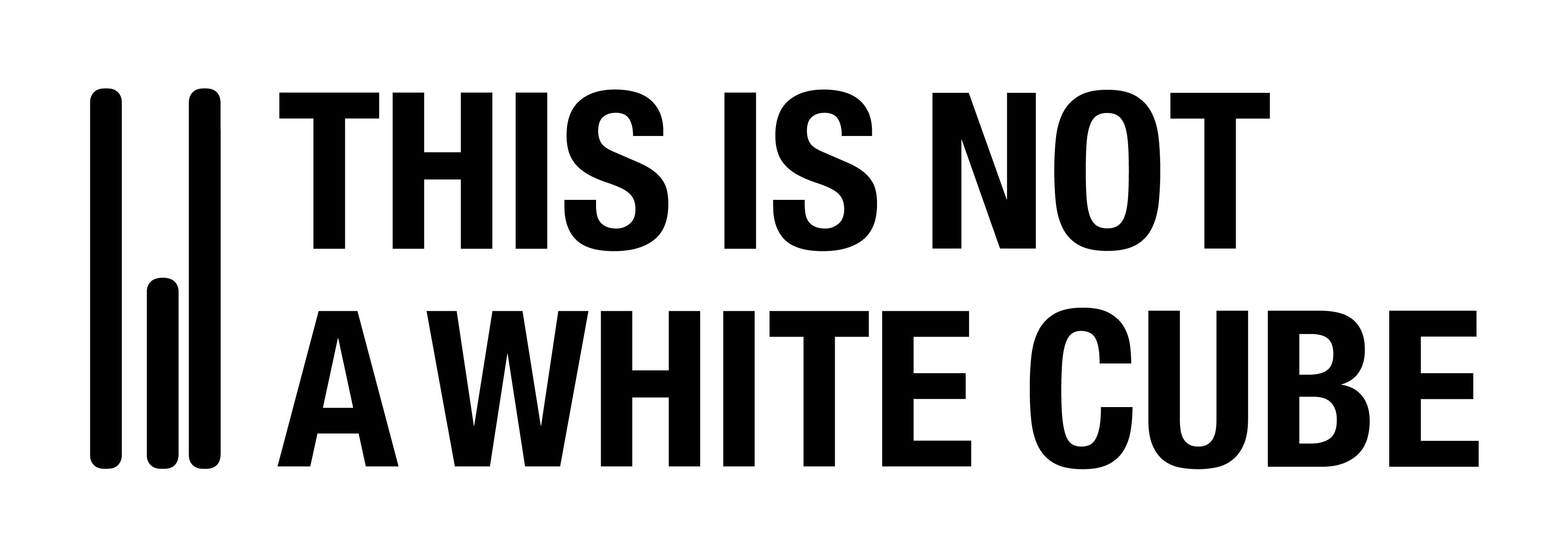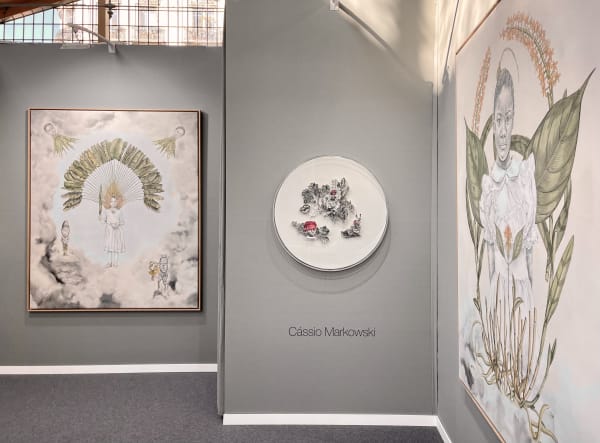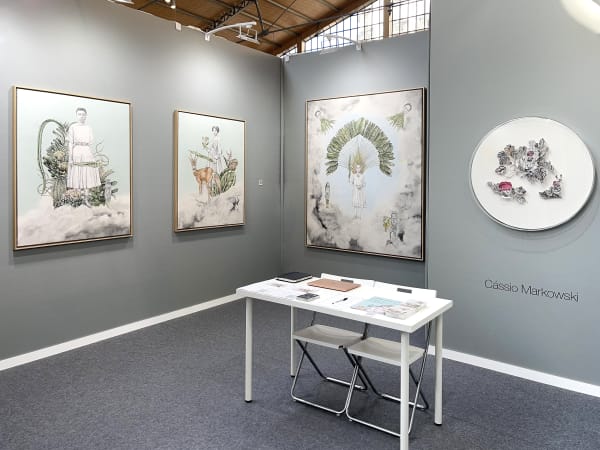Carreau Du Temple, Paris
B11
https://akaafair.com/
THIS IS NOT A WHITE CUBE contemporary art gallery presents "A Noite Não Adormece Nos Olhos Das Mulheres" (The Night Doesn't Fall Asleep In Women's Eyes) by Afro-Brazilian artist Cássio Markowski.
Developed specifically for the 2023 edition of AKAA - Also Known as Africa Art & Design Fair, the project reflects from a curatorial point of view and in the light of the concept of Decoloniality on the emergence of a critical vision of colonialism and on the importance that the African Diaspora - materialised in Markowski's work - associated curatorial projects, research, and documental studies assume in producing a renewed historical discourse of art in contemporary times.Under the title "A Noite Não Adormece Nos Olhos Das Mulheres” (The Night Doesn't Fall Asleep In Women's Eyes), adapted from the homonymous poem by Brazilian writer Conceição Evaristo, Cássio Markowski presents an unprecedented body of work that stems from a research project on memory and ancestry that the artist undertook in the context of his last solo exhibition - "There Was a Time When I Could Be Anything" - promoted by THIS IS NOT A WHITE CUBE, in Lisbon.
By means of drawing and painting, Markowski creates a pictorial, narrative and intellectual space in which the female figure carries the central stage and is surrounded by a concrete iconography that uses elements taken from the universe of Brazilian fauna and flora and from Yoruba culture. Ancestral masks appear in this context as attributes of a neglected collective memory. The artist’s production encompasses a process of documentation on different socio-cultural aspects of Afro-Brazilian history and the African diaspora. This approach relies on a constant search in archives, image databases and flea markets from where the artist collects ancient books, photographs, illustrations, newspapers, advertisements or old family albums. These sources allow for the construction and presentation of a particular visual universe in which, in a simultaneously poetic and political way, reference is made to the syncretic version of Brazilian Catholicism while also evoking regard to female power.
In Markowski's creations, human figures are universally worked centrally and in contours that draw on the allegory and iconology of the Baroque. They stare at the viewer. They question the viewer. They question the hegemonic meaning of thought and claim an inevitable and imminent process of historical reparation, healing and transformation in their attributes.
October 20 - 22 | Carreau du Temple, (4 rue Eugène Spuller, 75003 Paris)
Join us at booth B11!





